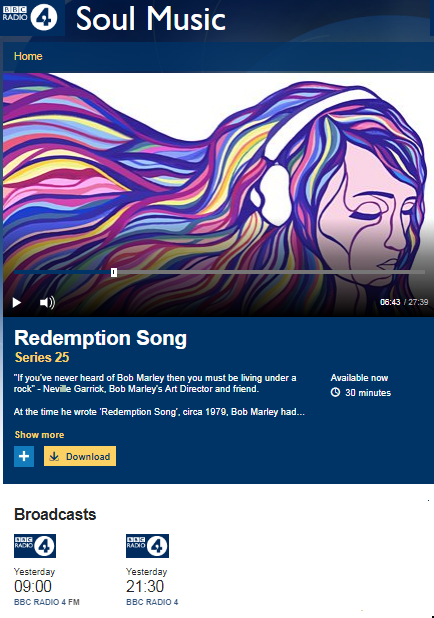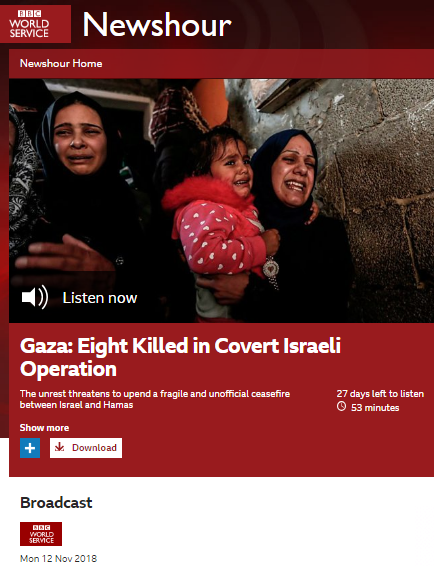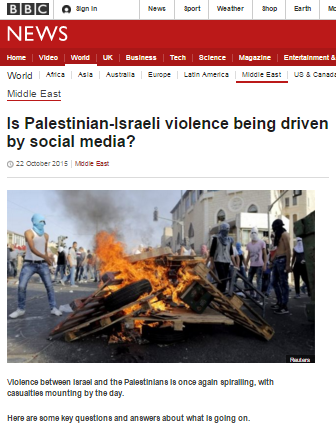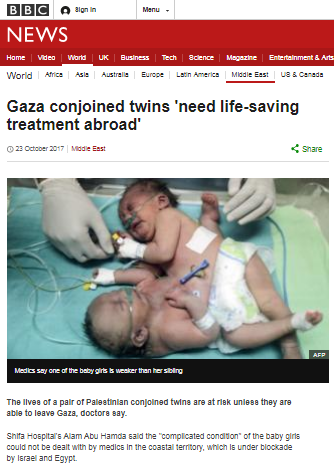h/t EM
The BBC Academy’s “journalists’ guide to facts and terminology” – published on the recommendation of the BBC Governors’ independent panel report on the impartiality of BBC coverage of the Israeli-Palestinian conflict in 2006 – instructs the corporation’s staff not to use the term Palestine except in very specific circumstances.
“There is no independent state of Palestine today, although the stated goal of the peace process is to establish a state of Palestine alongside a state of Israel.
In November 2012 the PLO secured a vote at the UN General Assembly, upgrading its previous status as an “entity” so that the UN now recognises the territories as “non-member observer state”.
The change allows the Palestinians to participate in UN General Assembly debates. It also improves the Palestinians’ chances of joining UN agencies.
But the UN vote has not created a state of Palestine (rather, it failed in its bid to join the UN as a full member state in 2011 because of a lack of support in the Security Council).
So, in day-to-day coverage of the Middle East you should not affix the name ‘Palestine’ to Gaza or the West Bank – rather, it is still an aspiration or an historical entity.
But clearly BBC journalists should reflect the changed circumstances when reporting on the UN itself and at the Olympics, where the International Olympics Committee recognises Palestine as a competing nation.
Best practice is to use the term Palestine firmly and only in the context of the organisation in which it is applicable, just as the BBC did at the Olympics – for example: “At the UN, representatives of Palestine, which has non-member observer status…”” [emphasis added]
In the past we have seen that guidance ignored on several occasions and in recent months, more frequently.
On December 27th BBC Radio 4 twice aired an edition of the programme ‘Soul Music’ relating to Bob Marley’s ‘Redemption Song’. In the synopsis to that programme, BBC audiences were told that:
“For Grammy Award Winning artist John Legend, it’s become an anthem for addressing the criminal justice system of America whilst in Palestine, for ‘Musicians without Borders’ practitioner Ahmed al ‘Azzeh it’s a song that inspires him to work towards a better life.” [emphasis added]
Listeners to this programme about a song heard the following unrelated context-free politicised statements (from 06:17 here) from Ahmed al ‘Azzeh:
“My name is Ahmed al Azzar and I am a Palestinian refugee [who] lives in Bethlehem in the smallest camp. It’s about 200 meters length by 150 meters, where 2,000 people lives there. It is not as anyone would wish to live in.”
Listeners are of course not told that the Beit Jibrin (Azza) camp is located in Area A and has been under the full control of the Palestinian Authority for the past twenty-two years. Neither are they encouraged to ponder the question of why, after over two decades, the PA still keeps part of its population in such camps or why refugee status is inherited by Palestinians. Ahmed al Azzar’s record as a professional activist with an anti-Israel political NGO is not revealed to listeners.
In other words, in a programme supposedly about music, BBC Radio 4 audiences were given a dose of context-free political messaging from a selected interviewee and a geographical description that breaches BBC guidance.




